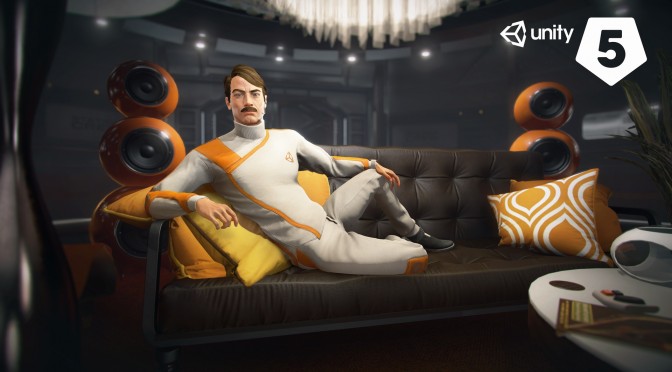Unity announced today that it will officially support Microsoft’s Hololens in Unity Engine. Unity and Microsoft will work closely together to optimize the HoloLens for Unity with tools, working methods and dedicated optimizations of Unity’s ability to efficiently create 3D and 2D models in Hololens.
Unity 5 will support Microsoft’s Hololens features, such as spatial mapping, spatial audio, gaze, gesture, voice recognition, and the ability to anchor holographic objects to specific locations in the real world.
Unity for HoloLens tools will be included with Unity Pro and Unity Personal Edition with no additional cost.
Steffen Toksvig, Vice President of Strategic Technology at Unity Technologies, said:
“Microsoft HoloLens unshackles game and app designers from traditional screens creating a freedom to completely reimagine how we view and interact with information, education, entertainment, creative tools, social networks, remote healthcare and more. We’re happy to be working with Microsoft to ensure Unity is the best development engine for such an exciting new platform. Our work will ensure a seamless and efficient development experience that takes full advantage of the unique features and capabilities of Microsoft HoloLens.”
Yusuf Mehdi at Microsoft added:
“Expanding our relationship with Unity Technologies was a natural next step in bringing content to Microsoft HoloLens. We are very excited to unveil this partnership and look forward to the possibilities it will open for developers creating experiences for Microsoft HoloLens.”

John is the founder and Editor in Chief at DSOGaming. He is a PC gaming fan and highly supports the modding and indie communities. Before creating DSOGaming, John worked on numerous gaming websites. While he is a die-hard PC gamer, his gaming roots can be found on consoles. John loved – and still does – the 16-bit consoles, and considers SNES to be one of the best consoles. Still, the PC platform won him over consoles. That was mainly due to 3DFX and its iconic dedicated 3D accelerator graphics card, Voodoo 2. John has also written a higher degree thesis on the “The Evolution of PC graphics cards.”
Contact: Email

